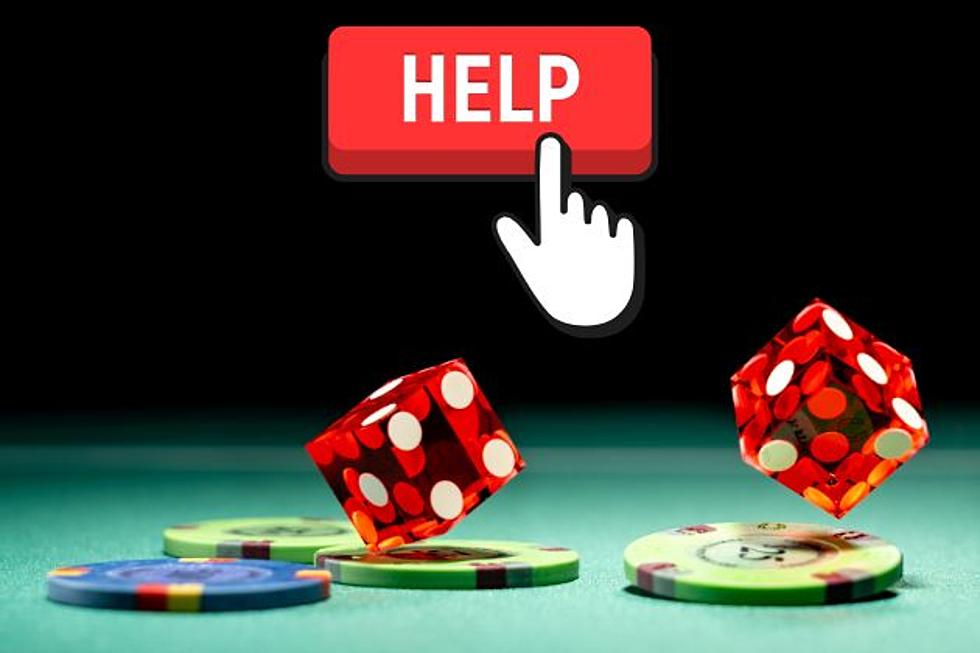
A bill aims to educate NJ high schoolers on risks of compulsive gambling
⚫ A bill in the Legislature would require compulsive gambling instruction in NJ high schools
⚫ Youth gambling is on the rise in New Jersey due to so many opportunities
⚫ More than half the kids in NJ are gambling, according to a 2021 report
A bill being introduced in the Legislature would require New Jersey school districts that include grades 9-12 to provide instruction to kids on the risks of compulsive gambling as part of the implementation of New Jersey Student Learning Standards in Comprehensive Health and Physical Education.
What does the bill entail?
The bill (A5308) is sponsored by Assemblyman Ralph R. Caputo, D-Essex, Assemblyman Daniel R. Benson, D-Mercer, and Assemblywoman Mila M. Jasey, D-Essex.
The instruction shall include, but not be limited to information on the dangers of gambling addiction, taking risks with personal finances or personal assets, and probability versus predictability.
The Commissioner of Education shall provide school districts with sample learning activities and resources designed to inform students of the potential risks of compulsive gambling and develop a training module on compulsive gambling for high school teachers to help local school districts in fulfilling the required instruction.
The training module shall include the ways compulsive gambling behaviors can develop, key indicators to watch for when determining if gambling is becoming a problem, and treatment implications to consider.
The act would take effect immediately and shall first apply to the first full school year following the date of enactment.
Is this a good idea?
With all the opportunities to gamble in New Jersey, it’s no wonder that youth gambling is increasing, said Felicia Grondin, executive director for The Council on Compulsive Gambling of New Jersey.
“We’re just so grateful to the New Jersey Legislature that it’s recognizing that youth gambling is on the rise, which it is,” Grondin said.
Just as legislators are introducing this bill, coincidentally The Council on Compulsive Gambling of New Jersey has created a program called Cognitive Perspective Restructuring (CPR) which focuses on risky behaviors including gambling, gambling addiction, substance abuse, mental health issues, and bullying. Grondin said the program is structured to educate children on how their choices can affect their lives going forward.
According to a Rutgers study, the compulsive gambling average across the United States runs at about 2%, Grondin said. In New Jersey, it’s at nearly 7% due to gambling access. There are so many gambling opportunities that more and more people are developing a gambling problem.
That, coupled with the excessive advertising which glamorizes the act of gambling gives children the impression that gambling is a great past time and that they can’t lose, she said.
“But the fact of the matter is that the house usually always wins,” Grondin said.
She said according to a 2021 New Jersey Middle School Risk and Protective Factor survey, 54% of kids in the state are gambling. Sometimes they gamble for money. Sometimes they gamble for things related to their video games or online gambling, Grondin added.
“Our kids are being raised in a very, very predominant gambling culture in our state. That coupled with online gaming only exacerbates the problem,” she said.
Kids need to be educated to know that excessive gambling can result in life-altering issues, she said.
Why is a gambling problem a challenging situation?
It is a hidden addiction, Grondin said. People don’t recognize when someone has a gambling problem, as they can when it comes to a drug or alcohol addiction.
Behavioral changes are noticed when drugs and/or alcohol are involved. You can smell alcohol on someone’s breath, you can see signs of impairment in the way a person talks or walks, Grondin said.
But it’s very difficult to identify someone with a gambling problem. Usually, it’s identified when it’s too late. Grondin said by that time, people have already lost their bank accounts, their jobs, their relationships, and their kids’ college funds.
Are there warning signs connected to youth gambling?
Yes. Grondin said parents should be on the lookout if their kids are borrowing money, selling personal items, and using gambling language. If their grades are dropping, they have no interest in doing the things they once loved, or they are abandoning their chores, these can also be warning signs of something else much more serious going on in their lives.
“So, by educating students at an early age that this an addiction, that it can lead to life-altering circumstances, we are just so grateful that the legislature is recognizing the need to educate our kids,” Grondin said.
If you or if you know someone who may have a gambling problem, Grondin urges you to either call 1-800-GAMBLER or go on the website for a wealth of helpful information.
Jen Ursillo is a reporter and anchor for New Jersey 101.5. You can reach her at jennifer.ursillo@townsquaremedia.com
Click here to contact an editor about feedback or a correction for this story.
Weird things NJ taxes - and some they don't
More From New Jersey 101.5 FM









